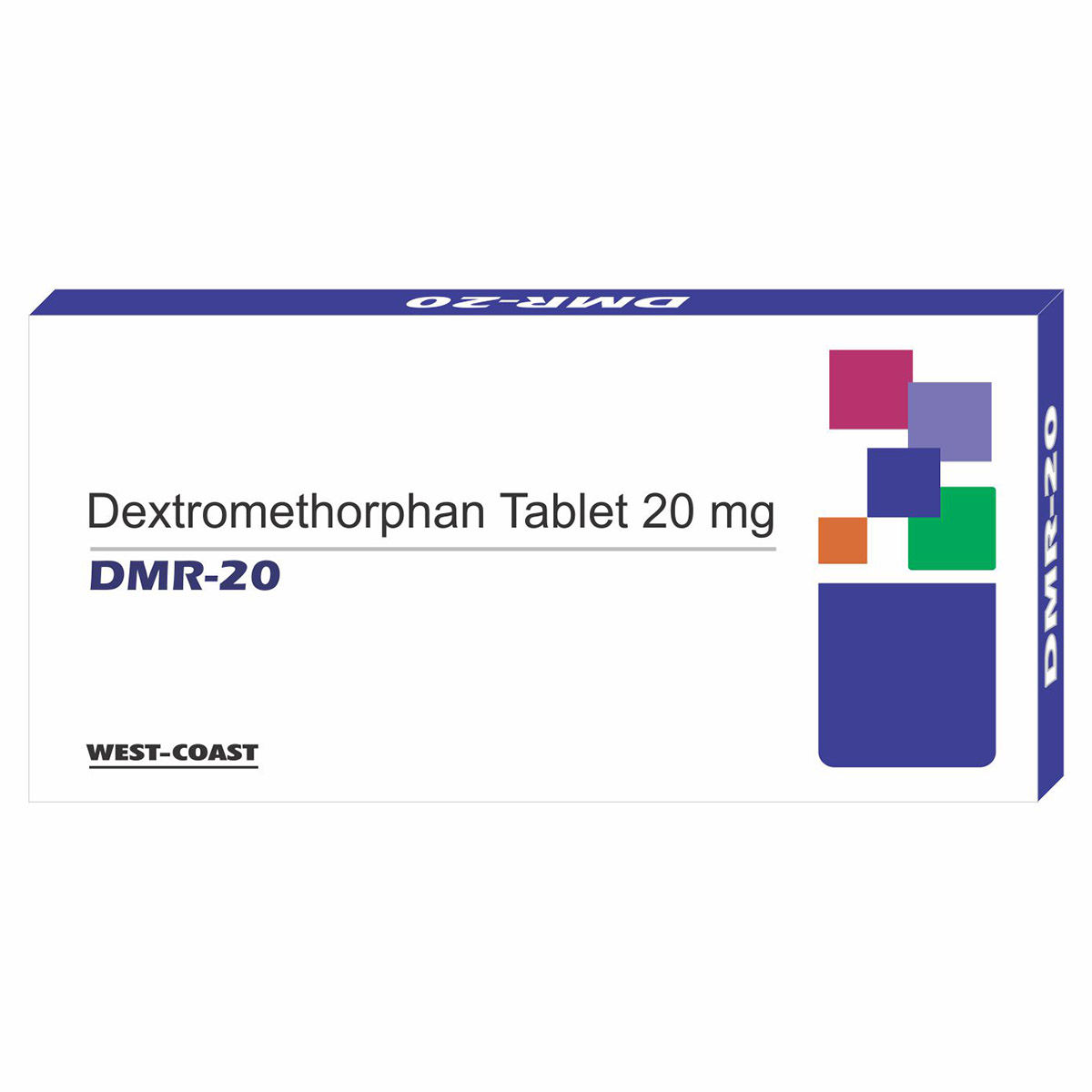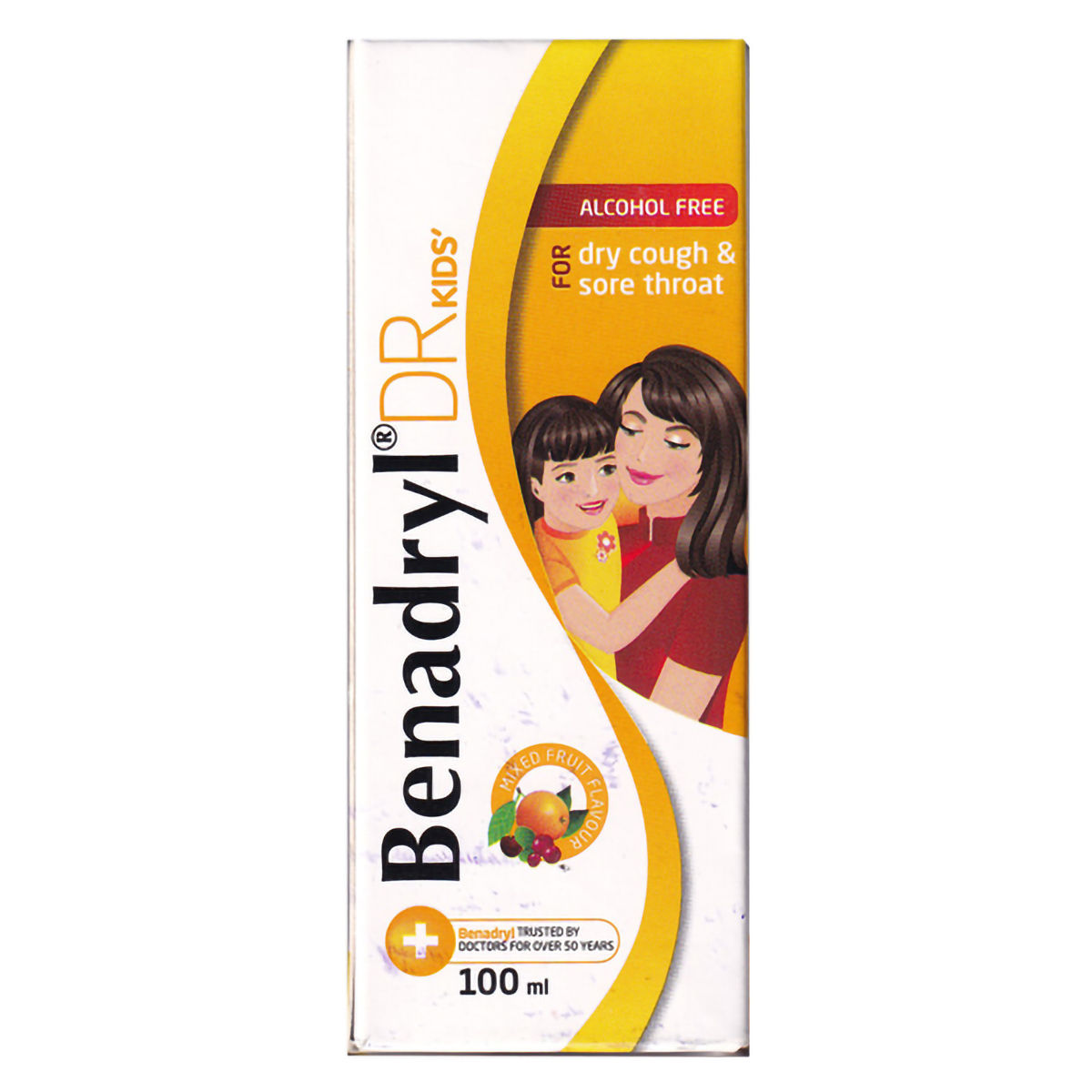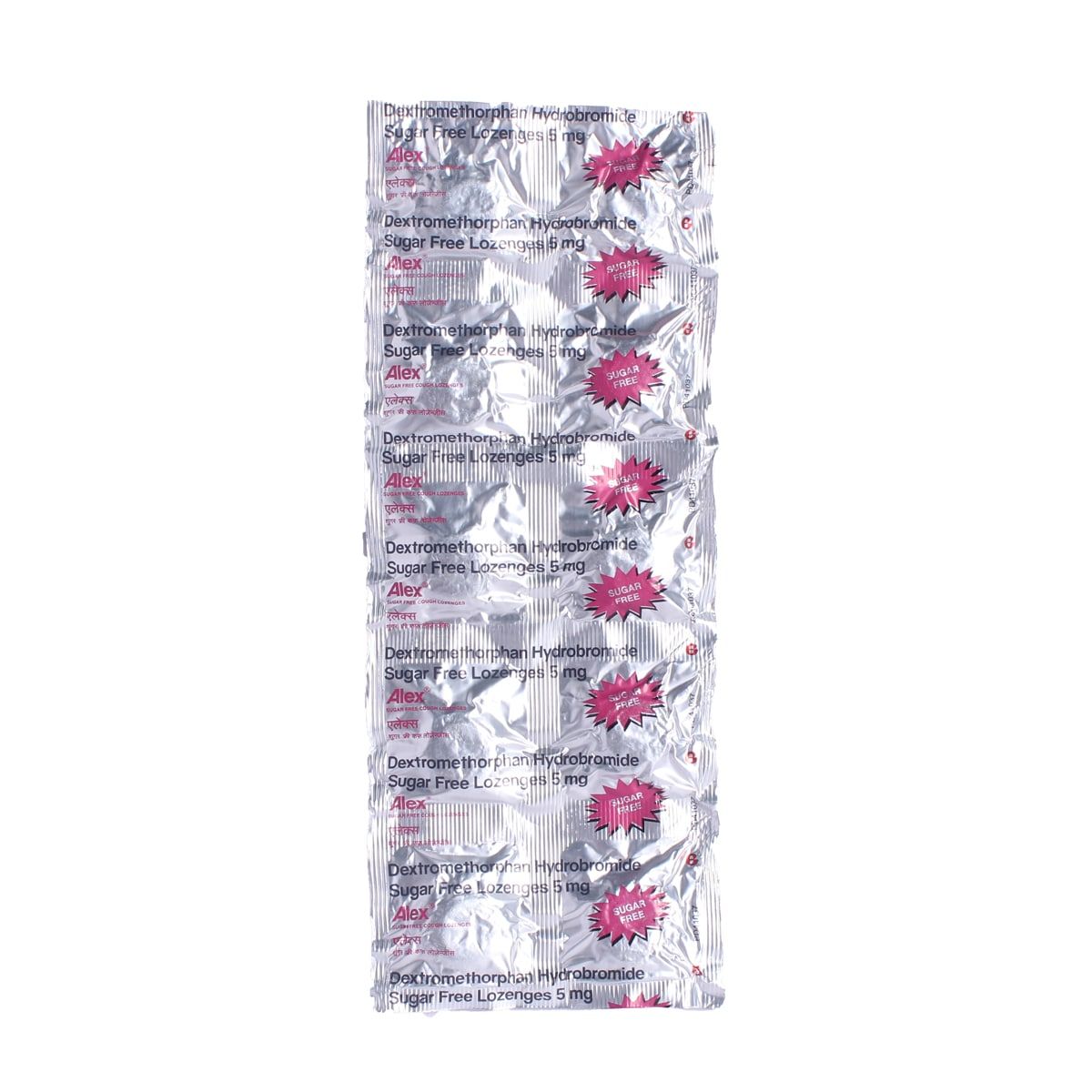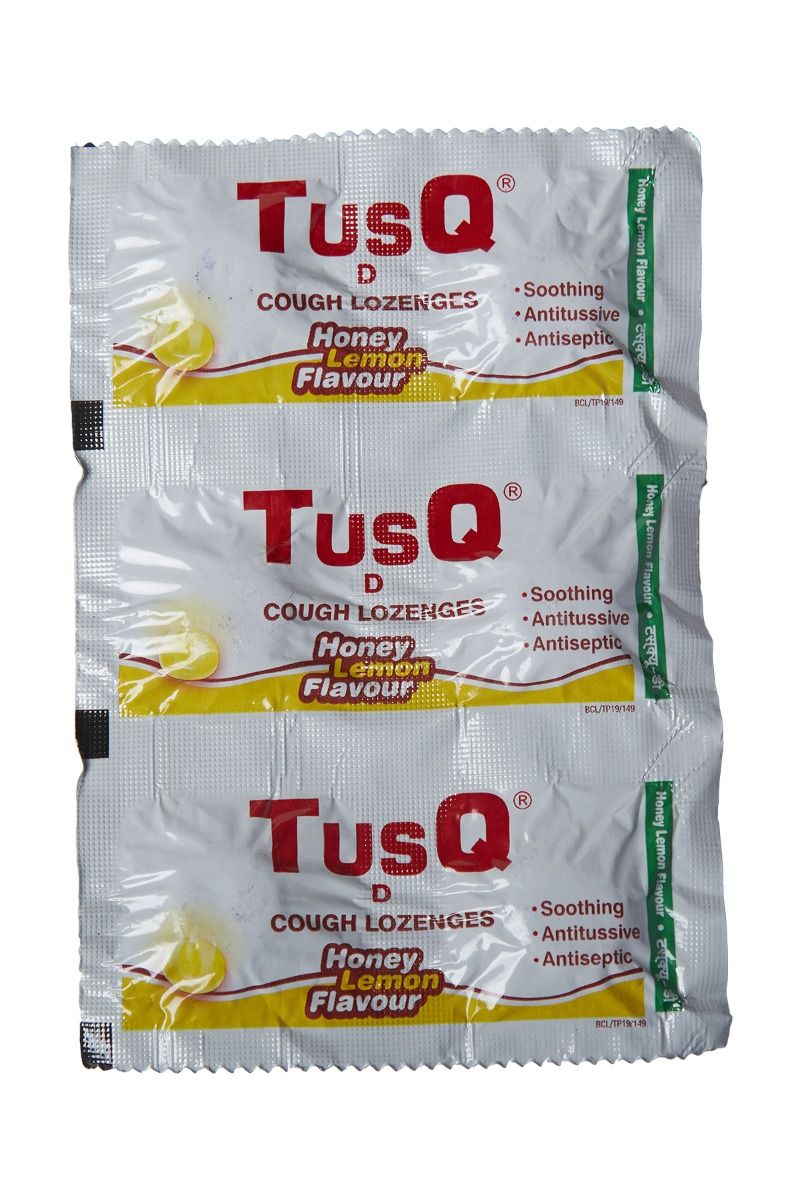Dextromethorphan
About Dextromethorphan
Dextromethorphan is used to treat dry cough. Cough is a reflex action that helps to clear any foreign irritant or mucus in the throat. Mostly, a cough lasts for a short time (two to three weeks), so it is acute. But sometimes, if it is persistent for more than eight weeks, it can lead to chronic cough. Dry cough refers to a cough where there is no mucus or secretion along with cough.
Dextromethorphan contains Dextromethorphan, which is a cough suppressant. It works by blocking the cough receptor present in the brain, which is known to cause cough. Dextromethorphan is generally prescribed for short-term treatment of dry cough. It does not treat chronic cough or cough caused due to smoking, emphysema, and asthma.
Take Dextromethorphan as prescribed. Your doctor will advise you on how often you take Dextromethorphan based on your medical condition. The most common side effects of Dextromethorphan are dizziness, drowsiness, sleepiness, confusion, and nausea. Most of these side effects of Dextromethorphan do not require medical attention and gradually resolve over time. However, if the side effects persist or worsen, please consult your doctor.
Do not take Dextromethorphan if you are allergic to any of its components. If you are pregnant or breastfeeding, please inform your doctor before starting Dextromethorphan. Also, mention all the OTC medicines you are talking to your doctor about before taking Dextromethorphan. If your condition does not improve or your cough comes back or occurs with fever or rash, please visit the doctor immediately as this could be serious.
Uses of Dextromethorphan
Medicinal Benefits
Dextromethorphan is primarily used to treat dry cough. Dextromethorphan contains Dextromethorphan, which is a cough suppressant. It works by blocking the cough receptor present in the brain, which is known to cause cough. Dextromethorphan is generally prescribed for short-term treatment of dry cough.
Directions for Use
Storage
Side Effects of Dextromethorphan
- Dizziness
- Drowsiness
- Diarrhea
- Respiratory depression
- Sleepiness
- Confusion
- Rash
- Nausea
Drug Warnings
Do not take Dextromethorphan if you are allergic to any of its components. If you are pregnant or breastfeeding, please inform your doctor before starting Dextromethorphan. Also, mention all the OTC medicines you are talking to your doctor about before taking Dextromethorphan. Dextromethorphan should not be stopped abruptly as it might lead to withdrawal symptoms like irritability, anxiety, diarrhoea, restlessness, and increased blood pressure. If your condition does not improve or your cough comes back or occurs with a fever or rash, please visit the doctor immediately, as this could be serious. Also, Dextromethorphan should be taken at least 15 days after your last dose of anti-depressants, especially monoamine oxidase inhibitors (MAO), as taking both together may be fatal. Do not smoke, as it might worsen your symptoms.
Drug Interactions
Drug-Drug Interaction: Dextromethorphan may interact with MAO inhibitor (isocarboxazid, phenelzine, rasagiline, selegiline, tranylcypromine), anti-arrhythmic medications (amiodarone, propafenone, quinidine and flecainide), opioid analgesics (codeine, tramadol, morphine, methadone), anti-anxiety medications (fluoxetine, paroxetine, sertraline) and anti-fungal (terbinafine).
Drug-Food Interaction: Avoid alcohol intake with Dextromethorphan as it may cause increased drowsiness, dizziness, and lack of concentration.
Drug-Disease Interaction: If you have lung disease, depression, anxiety, or are taking Monoamine Oxidase Inhibitor (used for depression), inform your doctor before taking Dextromethorphan.
Drug-Drug Interactions Checker List:
Safety Advice

Alcohol
unsafeAvoid consumption of alcohol with Dextromethorphan as it may increase drowsiness. Please consult a doctor before consuming alcohol with Dextromethorphan.

Pregnancy
cautionDextromethorphan is a category C pregnancy drug. Its safety in pregnancy is unknown, so it should be taken only if prescribed by a doctor.

Breast Feeding
cautionDextromethorphan is a category C pregnancy drug. Its safety in breastfeeding women is unknown, so it should be taken only if prescribed by a doctor.

Driving
unsafeDextromethorphan may cause drowsiness or tiredness in some people. Therefore, drive only if you are alert after taking Dextromethorphan.

Liver
cautionTake Dextromethorphan with caution, especially if you have a history of Liver diseases/conditions. The dose may be adjusted by your doctor as required.

Kidney
cautionTake Dextromethorphan with caution, especially if you have a history of Kidney diseases/conditions. The dose may be adjusted by your doctor as required.

Children
cautionDextromethorphan is not recommended for children below the age of 4. It can be really fatal if Dextromethorphan is given to children without a prescribed dose by a child specialist.
Habit Forming
Diet & Lifestyle Advise
Wash your hands with soap and water regularly to prevent the spread of germs.
Eat plenty of foods rich in good bacteria like yogurt improve overall health.
Drink plenty of fluids to avoid dehydration.
Gargle with salt water for relief from sore throat.
Do not smoke as it might worsen your symptoms, so avoid tobacco intake.
Avoid alcohol consumption with Dextromethorphan as it may cause tiredness, drowsiness, or lack of concentration.
Special Advise
Do not smoke as it might worsen your symptoms, so avoid tobacco intake.
Avoid alcohol consumption with Dextromethorphan as it may cause tiredness, drowsiness, or lack of concentration.
Do not use dextromethorphan if you have used an MAO inhibitor within the past 14 days. (isocarboxazid, phenelzine, rasagiline, selegiline, tranylcypromine or methylene blue injection).
Patients Concern
Disease/Condition Glossary
Cough: It is a reflex action that helps to clear any foreign irritant or mucus in the throat. Mostly, a cough lasts for a short time (two to three weeks), so it is acute. But sometimes, if it is persistent for more than eight weeks, it can lead to chronic cough. If the cough is accompanied by blood or barking cough, this could be serious and require medical attention. The most common causes of cough are cold/flu, asthma, emphysema, and COPD (chronic obstructive pulmonary disease). Also, some medications, especially angiotensin-converting enzyme inhibitors used for hypertension, are known to cause cough.
FAQs
Dextromethorphan is used to treat cough. It helps suppress cough due to minor sore throat and bronchial irritation associated with cold or inhaled irritants.
Dextromethorphan works by blocking the cough receptor present in the brain, which is known to cause cough.
No, Dextromethorphan should not be stopped abruptly without consulting your doctor as it might lead to withdrawal symptoms like irritability, anxiety, diarrhoea, restlessness, increased blood pressure. So, please consult your doctor, and he might lower your dose gradually depending upon your condition.
It is not recommended to take Dextromethorphan along with any anti-depressant medication as it contains dextromethorphan, leading to unpleasant side-effects or any drug interaction. Also, Dextromethorphan should be taken at least 15 days after your last dose of anti-depressants, especially monoamine oxidase inhibitors (MAO).
No, never take more than the prescribed dose of Dextromethorphan. It may lead to symptoms like nausea, vomiting, drowsiness, dizziness, unsteadiness, changes in vision, difficulty in breathing, fast heartbeat, hallucination, seizures, and coma.
Dextromethorphan is a cough suppressant that is not a steroid, opiate, antihistamine, narcotic, or NSAID. It is also not a controlled substance in most countries, although it may be regulated in some. Additionally, it does not contain alcohol or codeine,
Dextromethorphan is an effective cough suppressant that works by acting on the brain to decrease the cough reflex. The recommended dose of dextromethorphan varies depending on individual factors such as age, height, and severity of condition. It's essential to take dextromethorphan exactly as directed by your physician, as they will determine the appropriate dose and frequency based on your specific needs.
Dextromethorphan is generally considered safe when taken as directed by a physician. However, it can cause drowsiness and fatigue, especially when taken in large doses or combined with other medications that cause sedation. If you're taking dextromethorphan, it's essential to be cautious when driving or operating heavy machinery. Additionally, dextromethorphan can increase blood sugar levels in some individuals, particularly those with diabetes. If you have diabetes, it's crucial to monitor your blood sugar levels closely while taking dextromethorphan.
Dextromethorphan is generally safe for people with high blood pressure but check with your doctor first. It may slightly increase blood pressure in some individuals. It does not thin blood or affect blood clotting. Always consult your doctor for personalized advice.
You can safely take Dextromethorphan with benzonatate, acetaminophen, ibuprofen, pseudoephedrine, guaifenesin, and Tamiflu. However, use caution when taking dextromethorphan with codeine or diphenhydramine as it may increase drowsiness. Always consult your doctor or pharmacist before combining medications, as they can provide personalized guidance based on your specific needs and medical history. It's important to ensure safe usage and avoid potential interactions.
If your doctor prescribes Dextromethorphan with antibiotics, it's safe to take. But if not, don't take it. Do not club any medications unless advised by the doctor.
Avoid consumption of alcohol with Dextromethorphan as it may increase drowsiness. Please consult a doctor before consuming alcohol with Dextromethorphan.
Before taking Dextromethorphan, it's crucial to get a proper diagnosis from a doctor. This ensures that the medication is suitable for your specific condition and won't interact with any ongoing medications or worsen underlying diseases. A doctor's guidance is essential to ensure safe and effective treatment, so don't self-medicate – consult a professional first!.
Use Dextromethorphan only as directed and for a limited time (usually 7-10 days). If your cough persists, consult your doctor.
The most common side effects of Dextromethorphan are dizziness, drowsiness, sleepiness, confusion, and nausea. Most of these side effects of Dextromethorphan do not require medical attention and gradually resolve over time. However, if the side effects persist or worsen, please consult your doctor.
Consult your doctor before taking Dextromethorphan if you have an underlying medical condition, such as liver disease, kidney disease, or respiratory problems.









